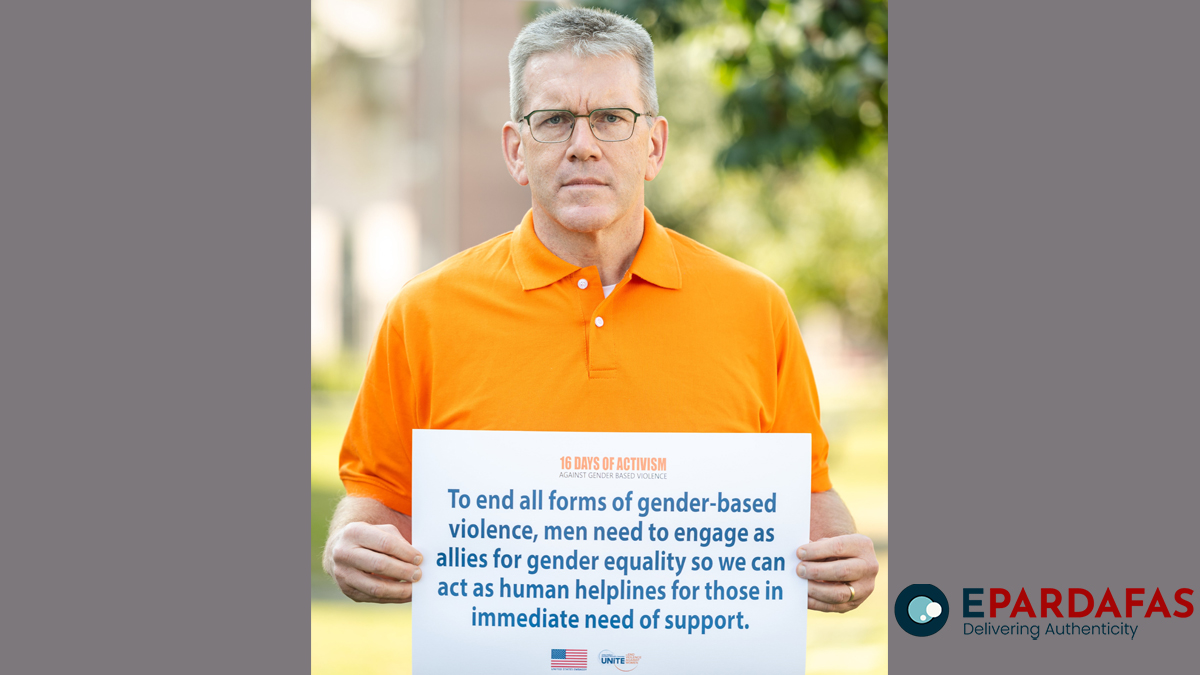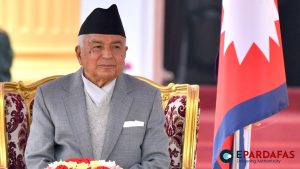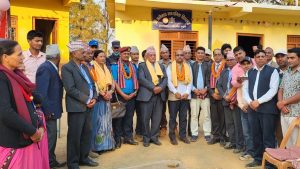
No Excuse for Gender-Based Violence: Ambassador Thompson

In a powerful move supporting the ongoing 16-day activism against gender-based violence (GBV), U.S. Ambassador Dean Richard Thompson took to social media today, where he posted a compelling message.
Ambassador Thompson, currently stationed in Nepal, shared a photo on social media platform X, accompanied by a poignant caption: “I stand for a future without violence against women and girls. During these #16Days of Activism against Gender-Based Violence, U.S. Embassy Nepal and UNiTE Campaign (UN Women), invite you to join us in amplifying one very powerful message: In our world, there is #NoExcuse for gender-based violence, and we must invest to prevent violence against women and girls. Stand with us, share crucial knowledge and resources, and support those most vulnerable to gender-based violence.”
I stand for a future without violence against women and girls. During these #16Days of Activism against Gender-Based Violence, U.S. Embassy Nepal and UNiTE Campaign (UN Women), invite you to join us in amplifying one very powerful message: In our world, there is #NoExcuse for… pic.twitter.com/RJZddrkd9x
— U.S. Ambassador Dean R. Thompson (@USAmbNepal) November 27, 2023
In the shared photo, Ambassador Thompson is holding a playcard that bears a critical message: “To end all forms of gender-based violence, men need to engage as allies for gender equality so we can act as human helplines for those in immediate need of support.”
The ambassador’s public stance aligns with Nepal’s commitment to the cause, as the country has been observing the International Day to End Violence against Women since 1997. The formal decision for the celebration was made in 2018, and both the Day and the activism are now widely acknowledged and observed across various sectors, from government bodies to civil society.
Nepal is actively participating in the global campaign, organizing a series of programs at the local, provincial, and national levels. This year’s theme for the Day is ‘UNITE! Invest to prevent violence against women and girls,’ emphasizing the importance of collective action and investment in preventing gender-based violence.
The International Day to End Violence against Women, initially observed by various countries since the 1980s, gained global recognition from the United Nations in 1999.
The current two-week-long campaign focuses on analyzing GBV trends, informing the public and government for solutions, fostering cooperation with men to combat GBV, building solidarity within the community working for gender equality and social justice, and formulating strategic plans to address GBV.














Comments